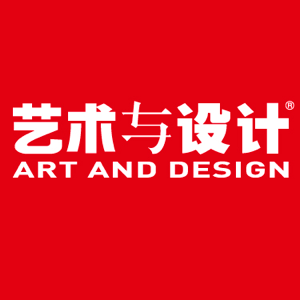
Exhibition site
Shelter In Place, a solo exhibition by renowned American industrial designer Stephen Burks, is currently on view at the High Museum of Art in Atlanta, GA. As one of the most recognized American industrial designers, Burks believes that machines cannot replace the creativity and imagination of handcraft. In his practice, craftsmanship is seen as a key innovation strategy for industrial design. In his role as a product development consultant, he maintains close collaboration with artisans and craftspeople in more than a dozen countries. This continuity with craft traditions reflects Burks' multicultural and inclusive perspective. His studio, Man Made, is located in Brooklyn, New York, and as such has been commissioned by many of the world's leading design-driven brands. The exhibition is a mid-career summary of the African-American designer's career, showcasing the results of his handcrafted industrial design practice over the past 10 years and exploring the expression of radical family living concepts in contemporary design.

"Friends andNeighbors Mirrors" (2021)
Entitled "Shelter," the exhibition explores Burks' new thinking on family life and living environments based on his research on the "Shelter in Place" series of models. Burks seeks to give direction to improving family life and living environments, to break the limits of practical problems, and to respond to change with creativity. In this project, he designed oversized stands for smartphones and tablets, as well as cocoon-like screen chairs called "private seats. The exhibition serves as a mid-career summary of Stephen Burks' career as an African-American designer, showcasing the results of handcrafted industrial design practice over the past decade and the expression of radical ideas of domesticity in contemporary design. At the same time, the exhibition attempts to sort out Burks' holistic approach to the disciplines of art, architecture and design, and presents a critical exhibition publication that fully explores the context in which Burks' practice is situated and the ideas involved in his work.

"The Others , Lanterns S,M, and Statue Lika", 2017
Stephen Burks was born in 1969 in Chicago, a city heavily influenced by modernism. Burks attended the Illinois Institute of Technology's School of Design, which was originally founded in 1937 by Bauhaus professor László Moholy-Nagy, and the campus was designed by modernist architect Ludwig Mies vander Rohe. Mies vander Rohe had a major influence on Chicago's urban landscape, and so Berks' design vision was heavily influenced by modernism. Burks considers himself an advocate of modernism, and it is from modernism that his concept of "design for better living" originates and is the basis of his practice. In his view, modernism is a form of critical thinking, even comparing its goals to those of African exiles fighting for freedom. He sees modernism as a way to reinvent oneself, to break free, to find new ways of expression and to create one's own role.

"Community Baskets", 2020
Influenced by the Bauhaus school's idea of eliminating the boundaries between different creative disciplines, Burks believed that only through the involvement of a sense of craftsmanship and the ideals of diversity could European design be saved from being confined to a single culture. Believing that "everyone has the ability to design," Burks founded the Man Made studio, which promotes a hands-on, collaborative approach that grew out of his involvement in a 2005 South African project with the nonprofit Aid to Artisans. Artisans, a non-profit organization, in South Africa in 2005. As a designer, he was paired with local artisans and residential communities. In the collaboration, Burks saw unexpected results, using traditional skills as a base to develop commercially viable contemporary designs, such as chairs wrapped in leftover plastic from parade floats and furniture covered with shredded magazines.

"TravelerIndoor Armchair with Hood" , 2015

"Dala Stool" , 2012
The trip to South Africa opened up new creative spaces for Burks, who began working with artisans around the world on a wide range of projects centered on the craft traditions of communities, from Senegal to Colombia, in an attempt to preserve those communities and their craft traditions. For example, he has worked closely with master weavers in the Philippines to design "Dala" (2012-2014), "The Others" (2017) and "Kida" (2017) for the German furniture brand Dedon. "Kida (2020), among other collections.

"A Free Man UnisexLoungewear Collection", 2013
One of these, the Dara low chair, housed in the Philadelphia Museum of Art, is made from recycled food and beverage packaging and is inspired by improvised floor seating found throughout Asia. In the Philippines, where Dedon has production facilities, Burks employs more than a thousand highly qualified craft production weavers in collaboration with a local community of artisans. In a process Burks developed with master weavers, expanded aluminum and extruded polyethylene are woven together to create a seat that can withstand years of use and weathering by the environment, and the artisans gain creative strength through variable patterns of colored stripes. "The Other Series was created in the wake of the Syrian refugee crisis, and Burks used materials from different countries to create the lanterns and modularize them. Burks gives life to each lantern, anthropomorphizing them from a unique perspective, and the work is a metaphor for the benefits of diverse communities: if you invite "outsiders" into your community, they may bring inspiring thoughts and perspectives. 2021 work "Friends and Neighbors Mirror "Composed of recycled marble and glass, this work grew out of Burks' early pandemic reflections on the power of community and the difficulty of being with friends, neighbors and family in years past, but as Burks points out, "Mirrors have the potential to remind you of all the people you are connected to and to have a positive impact on them. " Burks also gives each of the human mirrors a unique personality. "Zida" is a collection of hanging lounge chairs inspired by traditional rattan furniture, with soft Dedon fibers wrapped around an aluminum frame in a not-quite-enclosed structure that has a cradle-like, organic form that is open and inviting.

"Woven TV Rendering" , 2020
As a professor at Berea College in Kentucky, Burks has also worked with students on collaborative craft projects, creating landmark works such as 2020's "Crafting Diversity," a series of innovative home accessories ranging from throws to baskets and even decorative brooms that explore new expressions of traditional crafts such as weaving and woodworking. It seeks to explore new expressions of traditional crafts such as weaving and woodworking. This is typical of Berks' approach: supporting, embracing and sustaining historical craft techniques and reinterpreting them for contemporary life. The same is true of Woven TV Rendering, part of the Shelter, which reduces the television set to an extremely thin size, originally designed as a woven cabinet with a complete structure, but the work's lattice The direction of the housing shape respected the choices of the students and invited users, resulting in a happy, personalized look. This combination of physical process and digital technology plants new possibilities and reflects Berks' desire for people to participate in the design of their surroundings. Also in collaboration with Berea College students, Community Baskets uses a traditional combination of oak and aluminum, and Burks encourages the students to move away from the minimalism of craft objects, allowing them to express the importance of "hand" in their designs as much as possible. The importance of the "hand" as an artist's hand is an important factor in distinguishing craft from industrial production, and encouraging students to embrace the human aspect of design is one of Burks' most important contributions to the project.

"Broom Thing Ambient Object", 2020
Burks' BroomThing Ambient Object, created with students, is also an experimental collaboration in which they radically express the broom as a non-functional object, and where experimentation and tradition collide, craft takes on an unexpectedly transformative power. Burks' focus on participatory design and handcrafted values demonstrates his embrace of global diversity, design democracy, and multiculturalism. From the advocacy of viewpoints and contexts to community-driven and workshop practices, Burks is bringing an incredible force of change to the industrial design industry.
Article Source:艺术与设计
版权声明:【除原创作品外,本平台所使用的文章、图片、视频及音乐属于原权利人所有,因客观原因,或会存在不当使用的情况,如,部分文章或文章部分引用内容未能及时与原作者取得联系,或作者名称及原始出处标注错误等情况,非恶意侵犯原权利人相关权益,敬请相关权利人谅解并与我们联系及时处理,共同维护良好的网络创作环境,联系邮箱:603971995@qq.com】








